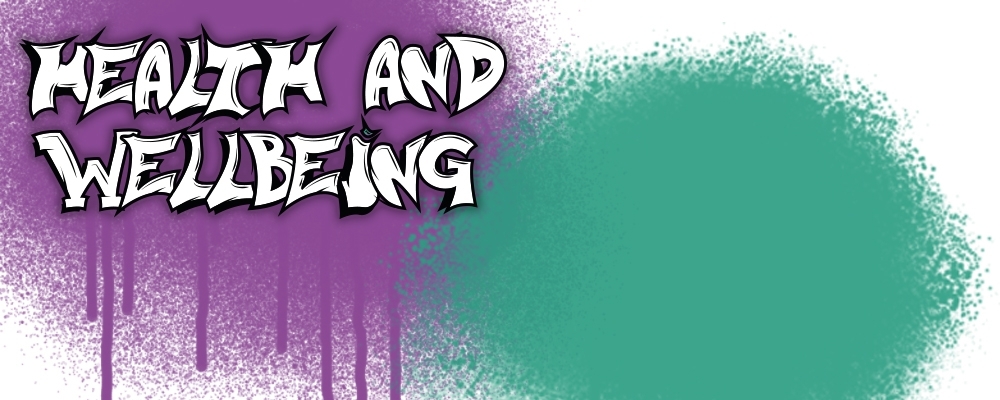Health and Wellbeing

Contents

Health and Wellbeing
We care about your health, and we want you to feel supported physically and emotionally to be as healthy as possible.
It is important to 'stay' healthy, there is lot of guidance out there about how you do that, we have provided some links and advice here and your Personal Advisor will also talk to you about this. Each person is different, and we all have different coping mechanisms in times of difficulty. It is crucial that you are able to choose the kind of health-related assistance that best meets your needs.
Remember - there is always someone who can help if you need it. You can speak with your Personal Advisor (PA) or anyone on the Leaving Care Team on Tel: 01635 503115.
Your health summary
Every young person in care is offered the opportunity to receive a copy of their health summary. It is provided to all young people who are/will be 18 on their next birthday and leaving care. It documents your health history, and your health needs. Its aim is to make sure that you have the information you need to manage your own health and wellbeing such as your immunisations and vaccinations and includes links to websites to access additional information that you may find useful.
NHS App
The NHS App is for anyone over the age of 13 and you must be registered with a GP surgery in England to get it. Your PA can help you to access this. The app allows you to:
- Get health advice via trusted NHS information and advice on hundreds of conditions and treatments. You can also answer questions to get instant advice and medical help near you.
- View your health record - securely access your GP health record to see information like your allergies and your current and past medicines. If your GP surgery has given you access to your detailed medical record, you can also see information like test results and details of your consultations.
- Register to be an organ donor - choose to donate some or all of your organs and check your registered decision.
- Find out how the NHS uses your data - choose if data from your health records is shared for research and planning.
- View your NHS number.
About the NHS App - NHS gives you information on how to download app
Stay Well - This is another NHS app that might be helpful
GP and Dentists
GP (Doctor)
A General Practitioner (GP) is a local family doctor. GPs deal with a whole range of health problems. They also provide health education, offer advice on smoking and diet, run clinics, give vaccinations, and conduct simple surgical operations.
You will be registered with a GP. If you are not sure which GP, you are registered with then ask your Personal Advisor. If you move, you will need to inform your GP and sign up with a different local GP if necessary. Your Personal Advisor can also help with this.
Anyone in England can register with a GP surgery to access NHS services. It's free to register. You do not need proof of address or immigration status, ID, or an NHS number.
To find a GP visit: Find a GP - NHS (www.nhs.uk)
Where to go when you are feeling unwell
If you are feeling unwell, but it is not an emergency or urgent, you should make an appointment with your GP.
You can also ask your local pharmacist for advice for many common minor illnesses such as diarrhoea, minor infections, headache, travel advice or sore throats.
111 is the NHS number to dial for urgent (non-emergency) medical concerns. NHS 111 is much more than a helpline - if you are worried about an urgent medical concern, you can call 111 to speak to a fully trained adviser. Depending on the situation, the NHS 111 team can connect you to a nurse, emergency dentist or even a GP, and can arrange face-to-face appointments if they think you need one; they can also assess if you need an ambulance and send one immediately if necessary.
You should call 999 if you or someone else is seriously ill or injured and their life is at risk.
You can also attend A&E (accident and emergency) is for serious injuries and life-threatening emergencies.
Dental Health
Even if you do not think there is anything wrong with your teeth it is important to see your dentist every six to twelve months for a check-up. Regular dental check-ups allow your dentist to see if you have any dental problems and help keep your mouth healthy. Leaving problems untreated could make them more difficult to treat in the future, so it's best to deal with problems early, or, if possible, prevent them altogether. After your check up your dentist will recommend a date for your next visit. This could be between 3 months and 2 years.
You can find a dentist that is convenient to you. You do not need to live in a specific area so it can be near your home, college, or work. To find a dentist visit:
Find a dentist - NHS www.nhs.uk
You do not have to pay for NHS dental services if you are:
- under 18, or under 19 and in full-time education
- pregnant or have had a baby in the last 12 months.
- being treated in an NHS hospital and your treatment is conducted by the hospital dentist (but you may have to pay for any dentures or bridges)
- receiving low-income benefits, or you are under 20 and a dependant of someone receiving low-income benefits.
Health care costs support for those on a low income
Those on a low income may be able to get help with NHS costs through the NHS Low Income Scheme (LIS). This gives reduced cost or free dental and eye checks/treatment, Care Leavers are also exempt form prescription charges up to the age of 25 years.
NHS Low Income Scheme (LIS) - NHS (www.nhs.uk)
Remember - there is always someone who can help if you need it. If you are struggling with health costs speak with your Personal Advisor (PA) or anyone on the Leaving Care Team on Tel: 01635 503115.
Attending appointments
If you need support to attend medical appointment, please speak to your person advisor.




